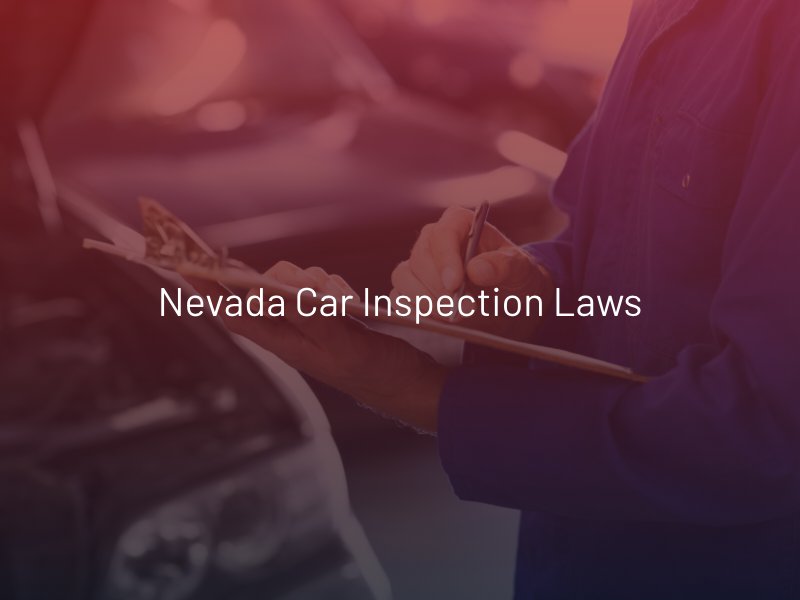Nevada Car Inspection Laws
Required motor vehicle inspections and emissions testing are an integral part of maintaining the safety and longevity of a vehicle. Car owners in Nevada must meet the following state inspection laws in order to apply for registration and legally drive their vehicle.

Inspections Before Registration
It is illegal to drive a vehicle in Nevada that is not registered. However, before heading to the DMV, there are inspections that must take place to be in compliance with the law.
New to Nevada
Drivers have around 30 days to have their car registered once they move to Nevada, and must possess:
- Current registration and plates on vehicle
- Title to the vehicle
- The Nevada Emission Vehicle Inspection Report
- The Vehicle Inspection Certificate
- A completed Application for Vehicle Registration
New Vehicle From Dealer
Drivers who purchase a new car in Nevada will need:
- Proof of car insurance
- Copy of the Dealership Report of Sale
- Nevada Emission Vehicle Inspection Report
- A completed Application for Vehicle Registration
Vehicle From Out-of-State Dealer
Nevada residents who purchase a vehicle from an out-of-state dealer, will need the following to get it registered:
- Bill of sale from the dealer
- Proof of insurance
- An odometer statement for the vehicle in question
- The lease agreement
- Nevada Emission Vehicle Inspection Report
- An approved Vehicle Inspection Certificate
- A completed Application for Vehicle Registration
Nevada Emission Vehicle Inspection Report
Vehicle emissions testing is required for most vehicles, as lawmakers are serious about protecting the public and the environment from vehicle-related air pollution. First off, determine if your vehicle must pass the test or is exempt. New cars or trucks are exempt until after their first and second registration cycles. Additional vehicles that do not have to meet this requirement, include:
- Hybrid electric cars that are in their first five model years
- Cars made in or before 1967
- Motorcycles and mopeds
- Alternative-fuel vehicles
- Vehicles in remote areas, testing areas can be checked here
- Diesel vehicles that weigh over 14,000 pounds
- Vehicles that are registered as classic cars and are driven less than 2,500 miles a year
- Replica vehicles
- Registration and/or testing 90 days before a transfer of ownership.
Registered owners of vehicles that must have an emission inspection will likely be required to have one conducted at each annual renewal. The mailed renewal notice will indicate if a test is necessary. After an emissions test, the results are valid for 90 days from the date of its completion. Emission tests for vehicles purchased by a Nevada dealer are valid for 180 days.
What Happens if You Fail Emissions Testing?
An emissions inspection is designed to flag vehicles that are emitting an unreasonable amount of smog. If a vehicle fails the initial test, owners are responsible for having the necessary repairs done at a licensed facility. The inspector will provide a full report, explaining what needs to be done. If owners cannot afford to fix their vehicle, it must be kept off the road. Once repairs are finished, the vehicle can be tested again. If the vehicle fails the second test, a waiver may be issued. A waiver allows the owner until next the registration renewal to resubmit an emissions test. Waivers cannot be issued to vehicles with warranty coverage, smoking vehicles, or emission device tampering. Refusing to comply with Nevada’s car inspection laws can result in traffic tickets and fines.
Speak to Our Car Accident Lawyer
If you or someone you love has been injured in a car accident caused by another’s negligence, contact our office today. Our car accident attorneys in Las Vegas will discuss your legal options during a free consultation.